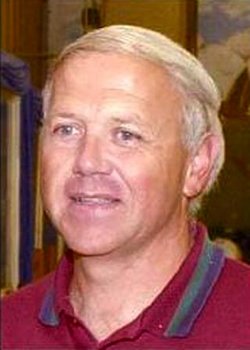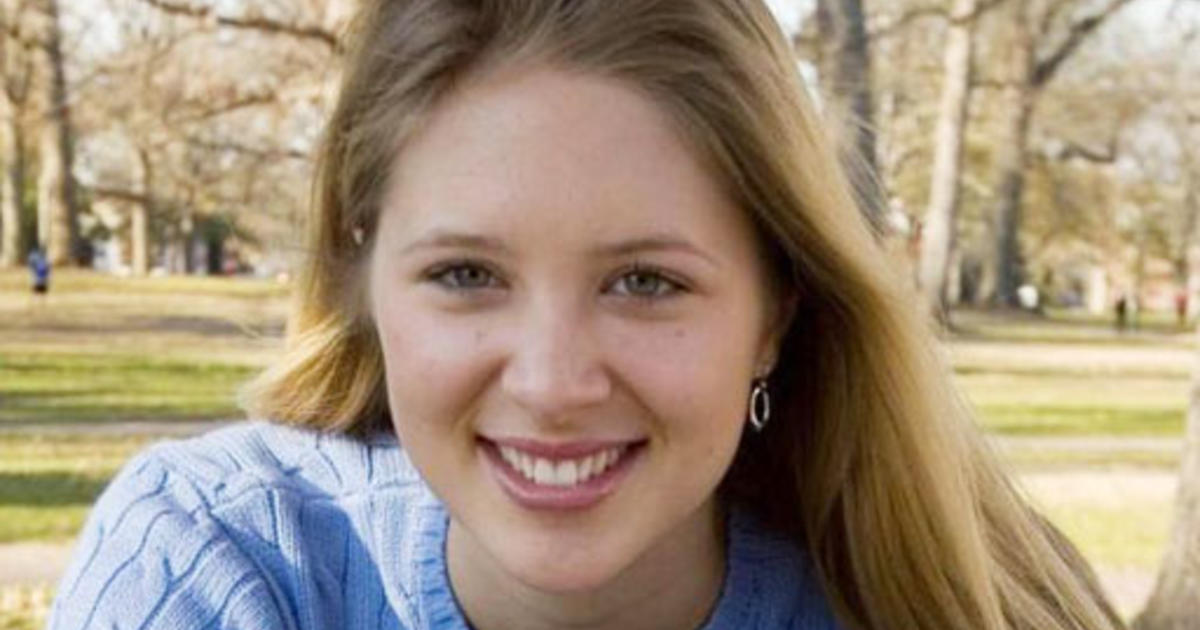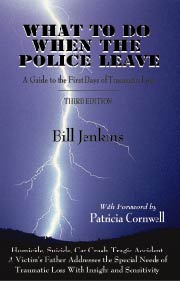
Summary
HB 424 is yet another bill that seeks to reduce the sentences of juvenile murderers at the expense of victims. And like other bills we see around the country, HB 424 disregards the horrific trauma victims endure when they are forced to relive the crimes at parole hearings. The bill would mandate parole eligibility for juvenile offenders after only 15 years, with the exception of those who commit first-degree murder. In first-degree murder cases, the maximum sentence allowed would be 25 years to life. Life without parole (LWOP) would be prohibited, even for the most heinous murders.
HB 424 is based on the false premise that all juvenile crimes are just unfortunate errors in judgment made due to youthful brains. It fails to consider the horrific nature of some crimes committed by juveniles, including in North Carolina. Contrary to what juvenile offender advocates claim, some juveniles knowingly commit evil crimes. Pursuant to Supreme Court rulings, juvenile murderers who act with such brutality can be sentenced to LWOP after a sentencing hearing.
HB 424 seeks to take away the ability of judges to make informed decisions upon consideration of the evidence. And by retroactively reducing sentences, HB 424 would impose additional trauma on victims who believed their ordeals with the criminal justice system were over. The bill would allow lawmakers to overturn judges’ decisions without considering the vital factors that the judges considered upon making those decisions. And it would deny justice and devalue victims by mandating parole hearings after only 15-25 years.
HB 424
HB 424 would mandate that juvenile offenders responsible for first-degree murder be eligible for parole after 25 years. Other juvenile offenders would be required to be parole eligible after 15 years. Offenders who were sentenced under the Fair Sentencing Act for crimes committed as juveniles would be eligible for parole after 20 years.
The Fair Sentencing Act was in effect between July 1, 1981 to September 30, 1994. The Act still applies to crimes committed during that period.
The bill is currently in the Committee on Families, Children, and Aging Policy. Please email the committee to express opposition. Email novjmlegislation@gmail.com if you want to do more.
Our Position
The Reality of Juvenile Murderers
To promote their agenda, juvenile offender advocates portray all juvenile crimes as being reckless immature mistakes made due to under-developed brains. They also minimize the brutality of juvenile crimes by referring to the teenage criminals as “children” and using photographs of child models as young as six. (Most juveniles who get LWOP were 16 or 17 when they committed their crimes. They were not “children” who can be accurately represented by elementary school-aged models). The picture painted by these propaganda tactics is inaccurate. The facts of juvenile LWOP cases paint a much darker picture, one that cannot be painted over with buzzword phrases.
In North Carolina, several heinous and appalling murders have been committed by juveniles. Some of these murderers received LWOP.
Criminals Who Could Be Released By HB 424
Dorthia Bynum, Harold Jones, & and Joseph Jones
Murderers: Joseph Jones, 13, Harold Jones, 16, & Dorthia Bynum, 17
Victim: Tiffany Nicole Long, 10
Crime location: Burlington
Crime date: October 16, 1998
Crimes: Kidnapping, gang-rape, rape of a child, & murder
Weapons: Wooden bed rail & coaxial wire
Murder method: Beating & strangling
Convictions: Bynum–guilty plea to second-degree murder, rape, kidnapping, and first-degree sex offense; H. Jones–first-degree murder, first-degree kidnapping, first-degree forcible rape, first-degree statutory sexual offense, & two counts of first-degree forcible sexual offense; J. Jones–first-degree murder, two counts of first-degree sexual offense, and first-degree kidnapping
Sentence: Bynum-124 years; H. Jones-life without parole (LWOP) plus 30 years; J. Jones-life without parole (LWOP) plus 300-369 months;
Incarceration status: H. Jones-Pender Correctional Center; Bynum-Anson Correctional Institution; J. Jones-Nash Correctional Institution

Summary
Joseph Jones, 13, his uncle Harold Jones, 16, and Harold’s girlfriend Dorthia Bynum, 17, lured Tiffany to a vacant house where they gang-raped her and then murdered her. J.Jones and Bynum beat her on the head with a bed rail, but when that didn’t work, J.Jones strangled her. All three assailants are in prison for life.
Details
Laurence Lovette
Name: Laurence Alvin Lovette Jr.
Victim: Eve Marie Carson, 22
Age at time of murder: 17
Crime location: Chapel Hill
Crime date: March 5, 2008
Partner in crime: Demario Atwater, 21
Crimes: Carjacking, abduction, kidnapping, armed robbery, larceny, murder, & killing to eliminate a witness
Weapon: .25 caliber handgun & 12-gauge sawed-off shotgun
Murder method: Gunshots to the shoulder, arm, buttock, cheek, and head
Murder motivation: Preventing Eve from telling others about the crimes committed against her
Convictions: First-degree murder, first-degree kidnapping, robbery w/ a dangerous weapon, larceny, attempted breaking and entering of vehicles, & misdemeanor breaking and entering
Sentence: Life without parole (LWOP)
Incarceration status: Incarcerated at the Columbus Correctional Institution


Summary
Lovette and Atwater kidnapped UNC student body president Eve Carson at gunpoint, robbed her, and then fatally shot her to eliminate her as a witness, disregarding her many pleas for mercy. Eve’s last words were: “Pray with me.” Lovette shot the 22-year-old college senior four times with a .25 caliber handgun, including in the face. When Eve managed to survive, Atwater shot her in the head with a 12-gauge sawed-off shotgun, murdering her execution style. Lovette was accused of murdering Duke University engineering student Abhijit Mahato as well, but was acquitted of that charge. Lovette was sentenced to LWOP and his sentence was upheld.
Details
Jamie Lowery


Name: Jamie Daquan Lowery
Victim: Alfred Parnell, 56
Age at time of murder: 16
Crime location: Robeson County
Crime date: July 2, 2008
Murder method: Gunshots to the back and legs
Convictions: First degree murder pursuant to the felony murder rule, the underlying felony being robbery with a dangerous weapon
Incarceration status: Incarcerated at Alexander Correctional Institution
Summary of the crime
Lowery robbed and fatally shot Al as he was trying to take trash to a dumpster. The high school teacher and tennis coach was found slumped over in his car with three gunshot wounds. He was 56 years old.
Details
The Culpability Myth

Juvenile offender advocates point to the typical traits associated with youth–impulsivity, immaturity, recklessness, and failure to appreciate consequences. NOVJM does not deny that these traits are common among youth. But that does not mean they are involved in all juvenile crimes. Laurence Lovette’s execution-style murder of Eve Carson is a perfect example. The crime was not impulsive–it was extensively planned ahead of time. He was not under peer pressure. As noted by the North Carolina Court of Appeals in a decision affirming Lovette’s sentence: “Defendant appears to have led his older co-defendant, Demario Atwater, through the commission of the crimes.”

Lovette also did not fail to appreciate the consequences of his crimes. At 17, he completely understood how kidnapping and terrorizing Eve caused her to suffer severe mental anguish. And he completely understood that by shooting her five times, including in the head, she would die. He completely understood what death meant for Eve–that her life was over and that she would never be able to accomplish her goals or find enjoyment. In fact, the motive for Eve’s murder shows that consequences were considered. Atwater and Lovette knew that a consequence of kidnapping and robbing Eve was having her tell others about the crimes, identify them to police, and testify at trial. So they prevented those consequences by eliminating her as a witness.
Learn more on culpability by viewing the following pages.
HB 424 is Unjust

For there to be justice, a sentence given to an offender must be proportionate to their crime. 25 years for a premeditated terrorizing and execution-style slaying of an innocent woman or a brutal rape and murder of a 10-year-old child is not proportionate. If these killers were released after 25 years, they would be allowed to live unfettered free lives from their early 40s onward. Meanwhile, the victims, who committed no crimes, cannot enjoy those freedoms. They cannot be paroled from their graves after 25 years. They cannot move on or start over in their 40s. Eve Carson only got to live to be 22. Tiffany Long only made it to age 10. Tiffany and Eve will never get to graduate college, start careers, get married, have children, and experience the joys of life. And to allow the criminals who took their lives to enjoy the freedoms they robbed them of is unjust.
The 15-year cap for offenders who commit crimes other than first-degree murder is also troubling. Some crimes warrant sentences longer than 15 years. To broadly conclude that no juvenile crime, with the exception of first-degree murder, warrants more time than 15 years is asinine. This part of the bill would allow all non-homicide offenders, such as attempted murderers and rapists, and killers who do not commit first-degree murder, to go free in their early 30s. 15 years is grossly lenient to some crimes. Again, dead victims cannot move on after 15 years. Nor can victims who suffer life-altering injuries such as Queena Vuong from Florida. Queena, 18, was raped and beaten by a 16-year-old. The beating was so severe that she was left paralyzed, blind, unable to speak, and with profound intellectual disabilities. HB 424 just does not take into account the brutal nature of some juvenile crimes.

Such light sentences also devalue victims. By stating that brutal murders only warrant 15-25 years, HB 424 advocates thereby demean their severity. The severity of the crime is determined in part by the value of what the offender takes away from their victim, which may be their personal possessions, physical health, mental health, or life. And by saying that ending a victim’s life is only worth 15-25 years they are by extension saying that what was taken itself, the victim’s life, is only worth that amount of time.
HB 424 is Cruel to Victims
Many murder victims’ families oppose releasing the killers, for the reasons described in the previous section. To fight release, they speak up at parole hearings. The parole process forces them to relive the murders. PTSD, anxiety, and other conditions flare up and they endure nightmares, flashbacks, and other symptoms.
Victims often walk away from life and long-term sentences believing that their ordeals with the criminal justice system are completely or largely over. Victims who were not planning on attending parole hearings do not make necessary preparations, such as preserving documents or registering for victim notification. This makes it harder to fight parole. Retroactive sentence reductions also inflict a great deal of emotional pain on victims. The already horrific parole process is rendered more traumatizing when it comes in a shock.
Retroactive sentence reductions are also a cruel betrayal from the justice system. Victims were promised that the offenders would serve a certain amount of time, perhaps their lives in prison. They lived under the belief that they would not have to worry about the assailants getting out and navigating the criminal justice system for a certain period of time if ever. But retroactive sentence reductions callously break those promises into a billion pieces.
The “Second Chance” Myth
Juvenile offender advocates try to promote their agenda by using emotional buzzwords like “second chances.” NOVJM agrees that most juvenile offenders should be given additional chances to demonstrate rehabilitation and succeed in life. But this does not mean that every single juvenile criminal should be given additional chances, regardless of the nature of their crimes. It is fair to say that juveniles who callously take the lives of innocent people should not be entitled to additional chances.
NOVJM will also point out that many juveniles who get life and long sentences have had “second chances” and more. For example, Laurence Lovette was on probation for a previous home invasion when he murdered Eve Carson. As we explain on our Dangerous Early Release page, he had an extensive criminal history involving breaking and entering, drug possession, felony possession of a firearm, and larceny. As noted by the Court of Appeals of North Carolina in a decision affirming Lovette’s sentence, Lovette failed to take advantage of the chances so generously given to him by the system:
Despite having a stable, middleclass home, defendant chose to take the life of another for a small amount of money. Defendant was 17 years old, of a typical
maturity level for his age, and had no psychiatric disorders or
intellectual disabilities that would prevent him from
understanding risks and consequences as others his age would.
Despite these advantages, defendant also had an extensive
juvenile record, and thus had already had the advantage of any
rehabilitative programs offered by the juvenile court, to no
avail, as his criminal activity had continued to escalate.
Lovette refused to give Eve Carson a second chance–he and his co-defendant ignored her pleas for her life and murdered her to silence her. As Eve was being held hostage in her own car by two armed robbers, she didn’t stand a chance. It is deeply unjust for murderers like Lovette to receive numerous chances while their victims get 0 chances.
HB 424 Takes Away Judicial Discretion
Pursuant to Supreme Court rulings, offenders who are being sentenced for crimes committed as juveniles must receive a sentencing hearing before LWOP can be imposed. At this hearing, youth and mitigating factors are considered. The judge will also consider the aggravating factors. In some cases, judges have chosen to impose LWOP on juvenile felons upon consideration of the evidence. HB 424 seeks to override the informed decisions made by judges who considered every ounce of evidence. Lawmakers who do not know the vital details that helped the judges come to their conclusions would essentially be allowed to choose different sentences. HB 424 also takes away the ability of judges to determine the appropriate sentences in future cases. This is not right.
Conclusion
HB 424 would reduce the sentences of felons responsible for horrific crimes. These sentence reductions would come at the expense of victims who would endure nightmarish parole hearings. NOVJM asks that HB 424, as currently written, not be made law. We never cease to be horrified by the stunning amount of money that is spent on freeing murderers without any consideration for victims. NOVJM requests that lawmakers in North Carolina consider victims and oppose HB 424.
Letter to North Carolina Lawmakers
Read our letter to North Carolina lawmakers here:











